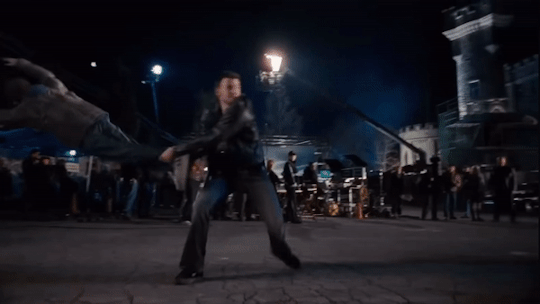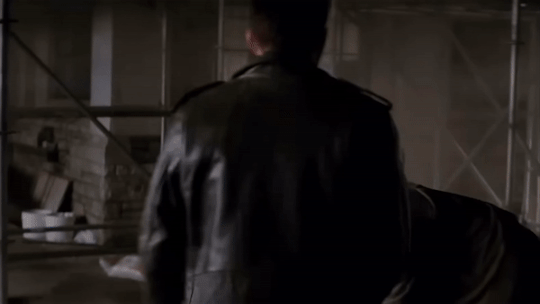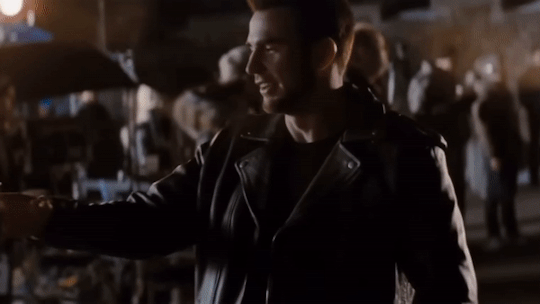#america vs the world
Explore tagged Tumblr posts
Text


Captain America: The Winter Soldier | 2014 Captain America: Brave New World | 2025
#marveledit#sam wilson#steve rogers#captain america#captainamericaedit#steverogersedit#samwilsonedit#filmedit#mcufam#useraurore#usereme#underbetelgeuse#usersameera#userelysia#dailyflicks#filmgifs#byyolanda#captain america brave new world#parallel#3k#me vs youtube clips....they fckin win jfc
3K notes
·
View notes
Text


Old man misses the plushie too, let him have this
#Luke totally keeps the bear around.#Source? Me keeping my childhood cat stuffie on my work desk#If I cam find evidence of the bear in NWoS I won't shut up about it for a week#... Implying I will shut up about NWoS at all in general...#professor layton#professor layton new world of steam#pl nwos#hershel layton#luke triton#my art#also headcanon that Luke still mixes up which side is which cause he's not used to how cars are in America vs Britain
380 notes
·
View notes
Text
#danny ramirez#captain america#brave new world#captain america brave new world#joaquin torres#falcon#the falcon#hot ones#hot ones versus#hot ones vs#marvel#anthony mackie
139 notes
·
View notes
Note
I MUST KNOW.. what are your thoughts on Simon with a s/o who’s a crybaby …..
YAY thank u for asking i love a crybaby thats #mefr ପ(๑•ᴗ•๑)ଓ




ʚɞ ⁺˖ simon isn’t exactly a crier, so the first time you get upset over something small he gets a little uneasy — looking over at you all confused while he drives and you try to explain through sniffles that nothings really wrong before he pulls over.
“what is that, what’re you- crying? something happened in the two seconds I wasn’t looking at you?” his eyes are darting back and forth between the road and your face, moving one of his hands to the back of your head in an attempt to soothe you the best he could.
“no—nothings wrong it’s just- i had a lot of fun today. with you, and i don’t want it to end.” that seemed to ease his nerves, sighing and loosening his grip on the wheel.
“shit, it that all? i’m not goin’ anywhere.”
after that he’s more understanding, he can usually tell when something will make you cry and he does his best to keep you in mind — even if it’s ultimately unavoidable ♡
ʚɞ ⁺˖ he’s not the best at words of comfort but he’s always up to holding you curled up in his lap, letting you cry into his shirt while he rubs your back and offers up whatever he’s smoking
ʚɞ ⁺˖ if you start crying somewhere public he’ll bring your head to his shoulder, asking if you want to step out for a second and glaring at anyone that looks at you any way he deems unkind, quick to tell them to fuck off before you even notice

#from the desktop of the biggest crybaby in the world#super self indulgent#sorry lol#i feel like crybaby reader has been done a lot on here but i will make her my own 👩🎨#angelette vs using maren yearly pics on every post#she’s just so sweetiepie#dividers by angelette#𓆩ꨄ︎𓆪 anon#˖°.𓆩♡𓆪 .°˖ simon q.#john q dinner in america#john q x reader#simon dia x reader#simon dia#simon dinner in america#˖°.𓆩♡𓆪 .°˖ blurbs#˖°.𓆩♡𓆪 .°˖ thots#crybaby reader ♡
216 notes
·
View notes
Text

" What about your hot coworker? Are they coming back?" ' Why am I even here?'
wanted to do a scott pilgrim pose , friends from the server picked out who was gonna be included. I knew I wanted to draw kuro ,based on @/ask2pame design
#aph hetalia#hetalia#hetalia art#hetalia fanart#hws hetalia#hetalia world series#hetalia axis powers#hws#2p japan#kuro honda#2p america#2p hetalia#2ptalia#2p canada#allen f jones#ameripan#2pameripan#mat just wanted to enjoy his drink#I wasnt sure if I shouldve asked before hand apologizes im just a nervous person#scott pilgrim#scott pilgrim takes off#spto#spvtw#scott pilgram fanart#scott pilgram vs the world#scott pilgram takes off#amepan#aph america#aph japan
141 notes
·
View notes
Note

Beacon Ranboo incoming
ranboo and vic michaelis in the same frame what the fuck
#i love vic michaelis sm#i should watch more of game changer im mostly a make some noise enjoyer#harley-the-pancake#im having quite the friday night guys#on one monitor: a livestream of the ongoing women's free skate in the world figure skating championships#on the other monitor: sen vs kru vct americas stage one match#on my phone: ranboo on game changers#ty for the askkk :)
39 notes
·
View notes
Text
everyone can always tell which of Alfred's things he bought himself and which were bought by Arthur because Arthur WILL be buying him exorbitantly priced bespoke pieces and brands God himself couldn't afford while Alfred has a backpack older than a Gen Z that he bought from a street vendor who handmade it from an old pillowcase.
#hws england#hws america#aph england#aph america#ukus#usuk#hetalia#hetalia world series#-#its vital to me that arthur and alfred see wealth and status and STUFF completely differently#al values creativity and sentimentality and whimsy#arthur values STATUS and POWER and how things tell others abt those things before you even have to open your mouth#alfred 'if u need to convince someone to respect u thru clothes they dont respect u' jones#vs arthur 'i obtained power and riches through blood sweat and tears after a life of wanting and u WILL look at me and now what im worth'#kirkland#oh the dichotomy#re: ukus#.txt
52 notes
·
View notes
Text
LET'S FUCKING GOOOOOOOOOOO!


I'M GONNA KICK YOUR BUTT
BOOM AMY FROM SONIC BOOM
#sonic movie universe#sonic cinematic universe#sega#sega sonic#paramount pictures#paramount sonic#sonic the hedgehog#sonic the hedgehog 3#sonic 3#sonic movie 3#sonic 3 movie#sega shadow#paramount shadow#keanu reeves#anthony mackie#the falcon#captain america#brave new world#captain america brave new world#marvel#mcu#marvel cinematic universe#sonic fandom#mcu fandom#paramount vs marvel movies
27 notes
·
View notes
Text










Happy 43rd Birthday Chris Evans!
Christopher Robert Evans, born June 13th 1981
#chris evans#steve rogers#captain america#johnny storm#the human torch#fantastic four#jake wyler#not another teen movie#lucas lee#scott pilgram vs the world#frank adler#gifted#ransom drysdale#knives out#cole turner#ghosted#queue
81 notes
·
View notes
Text

Is Donald Trump China’s biggest problem or blessing? He is both, but not equally. 🇺🇸 🇨🇳 🧧 Read how Trump’s actions are benefiting China.
➡️ Keep reading Here
#trump is a threat to democracy#trump 2024#trump king#trump administration#president trump#donald trump#trump#fuck trump#doge#jd vance#america#trump tariffs#usa news#usa#usa politics#united states#usa vs canada#usa vs china#xi jinping#china#chinese#politics#american politics#political#uspol#us government#news media#news article#tech news#world news
19 notes
·
View notes
Text
all they had to do to catch bucky and steve back up on the years they missed is get them to watch scott pilgrim vs the world
#i feel like its literally everything fit into a movie (which makes it one of the greatest ever)#if u cant tell i like scott pilgrim#marvel#james bucky barnes#bucky barnes#steve rogers#captain america#winter soldier#white wolf#super soldiers#scott pilgrim#scott pilgrim vs the world#mcu fandom#marvel mcu#marvel fandom
21 notes
·
View notes
Text










Lucas Lee
Scott Pilgrim vs the World (2010)
Please give credits if used
#lucas lee#gifset#scott pilgrim vs the world gifset#lucas lee gif#gifs#lucas lee gifs#scott pilgrim vs the world gifs#scott pilgrim vs the world#spvtw gif#spvtw#spvstw#spvtw lucas#chris evans#chris evans gif#steve rogers#captain america#scott pilgrim x reader#lucas lee x reader#lucas lee x female!reader#spto gif#spto spoilers#spto#chris evans gifset#scott pilgrim edit
146 notes
·
View notes
Text
clint barton has been my favorite character for years, i've been writing him for years, and i still have to do a quick google search every. single. time. i have to mention his height in feet somewhere, i can't remember that shit for the life of me. my european ass knows damn well that man is 1.91m tall but as soon as i'm in american territory?? no fucking clue. is he 6'1", 6'2", 6'3", 6'4", 10'69"??? who tf knows, definitely not me
#i literally looked it up for a fic right before typing this and i already forgot again#american units they can never make me like you❤️#clint barton#hawkeye#amy talks#america vs the rest of the fucking world#marvel#marvel comics#languages#europe#america
46 notes
·
View notes
Text
let’s discuss the difference between how macusa and m.o.m. treat their criminals.
THE MINISTRY OF MAGIC, BRITAIN

criminals guilty of severe crimes such as murder are not sentenced to death, so to speak. they are sentenced to life in Azkaban, where they stay for the rest of their lives, drained of their happiness until they die of misery, health issues, or whatever. dementors are supposed to be soul-sucking creatures, but they don’t actually suck out the souls of the prisoners. they’re supposed to be satisfied with feeding on only emotions, and guard the prisoners till their end.
there’s a bit of discrepancy, however- let's compare the sentences of Sirius and Barty Crouch Jr. Sirius is convicted for the murder of Peter Pettigrew and 12 Muggles, and his sentence is simply life in Azkaban. Barty Crouch Jr is convicted for the one murder of Cedric Diggory, but he has his soul sucked out by a Dementor.
(note: yes, he actually killed his father, but I’m pretty sure Fudge didn’t know that until AFTER crouch jr got the dementor‘s kiss.)
so- the difference in their sentences is wildly different. however, one important factor is that Fudge is in charge in Barty‘s case, and we know he’s a wack ass Minister, while he wasn’t Minister yet when Sirius was convicted. so we can probably excuse this injustice to Fudge's incapabilities as the Minister of Magic.
so in conclusion: the British ministry does not take the lives of their prisoners and just dumps them in the hands of dementors to die naturally or have their souls sucked out.
THE MAGICAL CONGRESS OF THE UNITED STATES OF AMERICA

criminals guilty of severe crimes are immediately sentenced to death. there are no dementors in America, as far as we know.
Newt and Tina��s case is a little complicated. MACUSA knew that neither actually killed Shaw themselves, but they were held responsible for the Obscurial that did it. Tina‘s role in the matter was barely even known, and if they’d asked around a little bit, they’d have known that she had been trying to arrest Newt for days and was just doing her job. but with little to no information on what part she played in the murder, she was sentenced to death as well.
like i said, no dementors. here, the deaths of the criminals are orchestrated by wizards and witches. their happy memories are drawn out and are shown to the prisoner in a pensieve-like cesspool, until the prisoner is tempted to relive those happy memories and jump in, killing themselves. so basically, they’re gaslighted into committing suicide.
the most dramatic part of this comparison is that the way prisoners meet their end in Britain is the exact opposite of the way they do in America. think about it- in Britain, their happy memories are drained out until they are left with only misery and depression and negativity, and they die, tortured and unhappy. in America, they are forced to view their happy memories until they jump in- dying cruelly, but (to a certain extent) happily.
woah.
which method do you think is worse, or better?
#harry potter#hp#wizarding world#potterhead#macusa#ministry of magic#america vs britain#fantastic beasts#fantastic beasts and where to find them#comparison#fbawtft#newt scamander#sirius black#tina goldstein#barty crouch junior#m.o.m#holy shit tbh#hp metaverse#harry potter meta#hp meta
24 notes
·
View notes
Note
btw there are shock sticks in captain america brave new world please remember 🙏 🙏 it's very important you remember
i'm gonna think about this non-stop for the next two days, i will not forget.
#are they used on torres though#regardless they WILL be once i see this thing#anon asks#asked an#ca: bnw#captain america brave new world#bnw spoilers#ish#i think you see it in the trailer vs sam#but just in case#did you know? i have the best anons
19 notes
·
View notes
Text

Special Poster ''Captain America Vs Red Skull in II War World'' Marvel Comics!
#Special Poster ''Captain America Vs Red Skull in II War World'' Marvel Comics!#Captain America#Captain America Comics#Captain America Vs Red Skull#Red Skull#Steve Rogers#Steve Rogers Comics#Johann Shmidt#Steve Rogers Vs Johann Shmidt#Steve Rogers ~ Captain America#Johann Shmidt ~ Red Skull#Marvel#Marvel Comics#Marvel Multiverse#Marvel Multiverse Edit
32 notes
·
View notes